The Payen family, who have owned the Bel-Air estate in Anse-Bertrand since the 1970s, are now producing rum from a plot of land grown organically and by hand. This is yet another example of a West Indian brand being created from land rich in sugar cane, but without distillation equipment (the rum is distilled at Montebello).
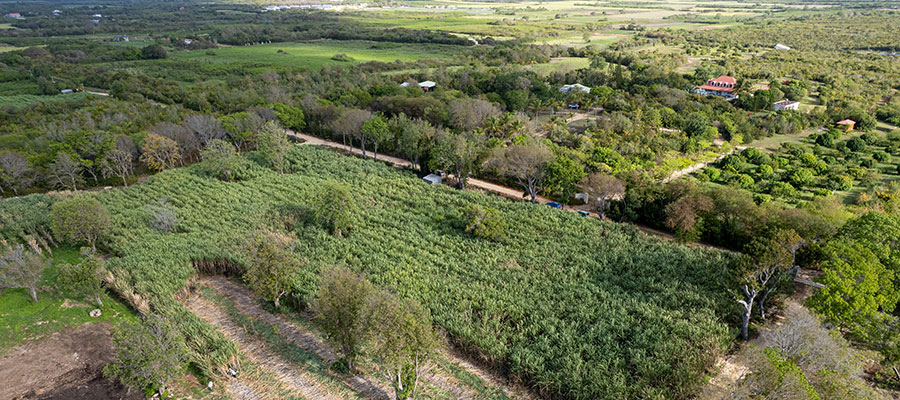
This is the kind of story that is being written more and more in the French West Indies. Men and women with hectares of land, sometimes planted with sugar cane but not always, sometimes with a family link to rum, past or present.
One fine day decide to produce rum. Some start out directly as producers and take charge of the rum-making process from start to finish, from the cane field to distillation. This is the case, for example, of Yves Assier de Pompignan with the Martinique brand A1710, or the group of growers who created Papa Rouyo in Guadeloupe. Increasingly, however, these landowners prefer to handle the agricultural part of the rum production process themselves, leaving the distillation to well-established players with columns or stills.
When you only grow a few hectares of sugar cane, and only need to distil for a few days a year, there’s no point investing in expensive equipment. This is the case, for example, with Baie des Trésors and Braud & Quennesson in Martinique. It’s also the case with the new Guadeloupe brand, Marie-Louise, created by Rodolphe Payen. But how did this just turned 40, whose family business is primarily in bottled water, come to create his own brand of rum?
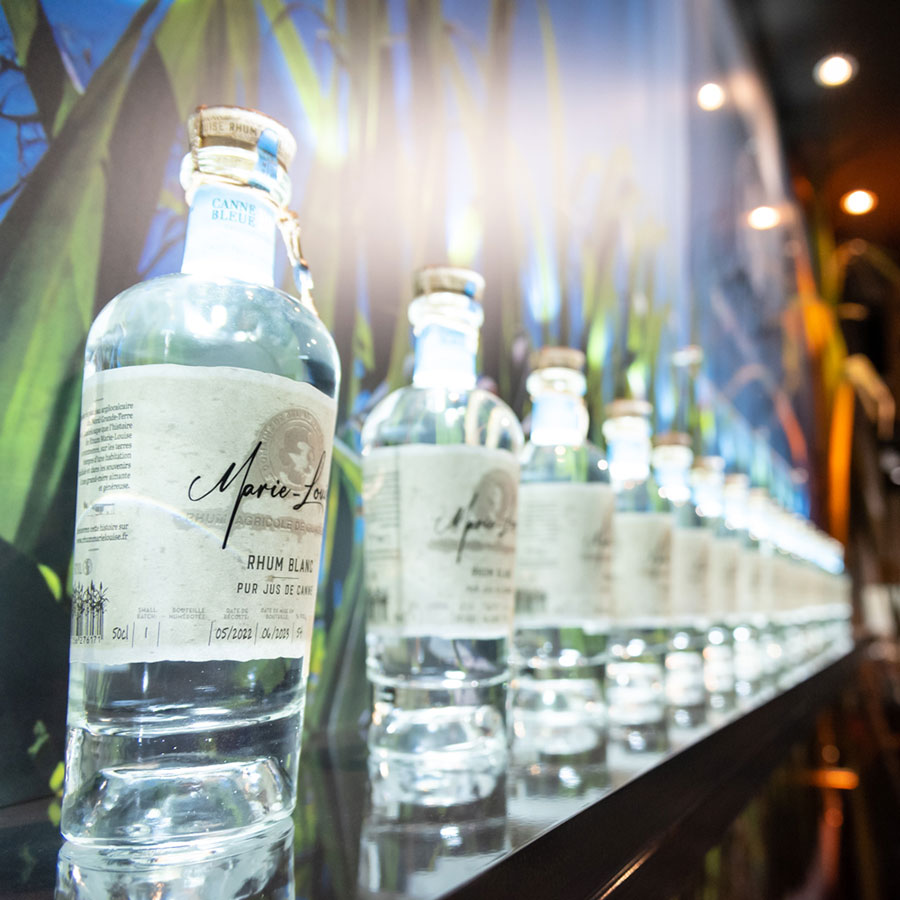
A RUM NAMED AFTER HIS GRANDMOTHER
I’m Guadeloupean, born in Guadeloupe,” Rodolphe Payen begins. In the 1970s, my grandmother Marie-Louise bought the Bel-Air estate in the north of Grande-Terre on Anse-Bertrand. It became an estate where the family spent their holidays, and where there was also a farm: cattle, goats, livestock, but not much farming.” Following Marie-Louise’s death in July 2006, the estate gradually fell into disuse.
Meanwhile, Rodolphe and his sister Victoria began to develop a passion for rum. So much so that she opened a rum cellar in Saint-Barth, La Case St-Barth. So much so, that at the time of Covid 19, the duo decided to relaunch the estate’s sugar cane farming activity… and one thing led to another, to create their own brand of rum, called Marie-Louise of course!
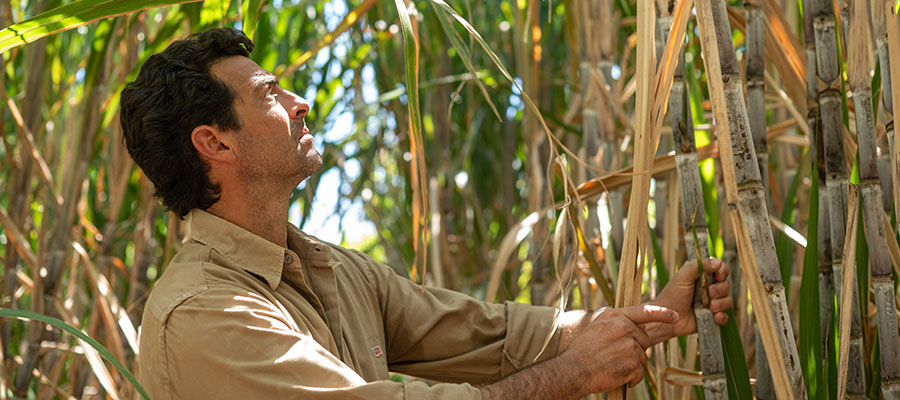
A KIND OF BLUE
In April 2021, the first plantation of sugar cane will begin, using organic farming methods.” I didn’t want to use chemical fertilisers, herbicides, insecticides and other synthetic fungicides that damage the land,” explains Rodolphe Payen. As the estate hadn’t been farmed for more than 20 years, and was therefore free of all chemical products, I was immediately awarded organic certification”.
The new farmer decided to plant blue cane. An atypical option for the north of Grande-Terre, which has an arid climate, with low rainfall and lots of sunshine. “When it comes to transforming it into rum, blue cane has aromatic characteristics that I really appreciate. In general, it likes volcanic soils with deep earth, so it was a gamble to plant it here in clay-limestone soil, which is typical of the terroir of northern Grande-Terre,” explains Rodolphe Payen.
”I amended the soil with organic fertiliser made from hen droppings, as well as plant-based fertiliser, and I fought a real battle to be able to irrigate with the droughts we experienced in 2021″. A total of 1.2 hectares have been planted, and everything is done by hand, with no machines to damage the soil or the canes. And the gamble paid off, because in the first campaign, the first crop of 75 tonnes was harvested, with a high Brix of 22%.
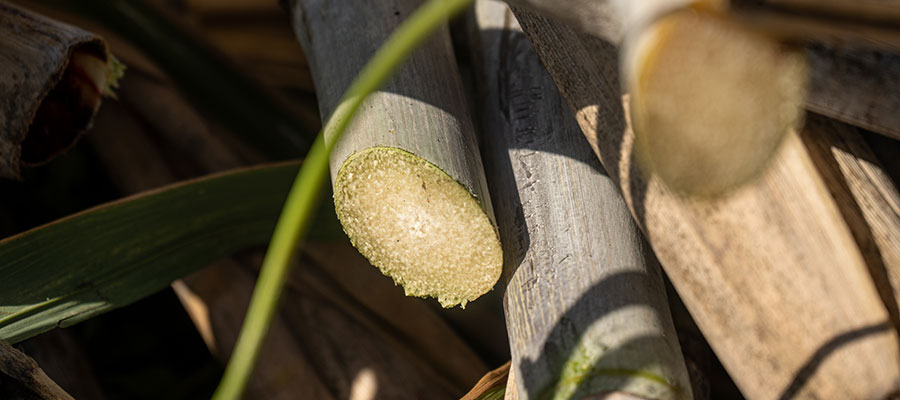
AGRICULTURAL, PLOT-BASED, SINGLE VARIETY, VINTAGE AND ORGANIC
All that remained was to find an operator willing to let the new brand use its distillation facilities for a few days a year. Initially I wanted to work with Reimonenq, with whom I have a very good relationship and friendship, but in the end it was Montebello who did the distilling because it is one of the only distilleries able to receive and crush whole hand-cut sugar cane,” says Rodolphe Payen. “They can also work organically, following the specifications set by Ecocert, even though this requires a lot of cleaning.”
Montebello makes its facilities available to Marie-Louise for three days, during which the crushing and distillation take place. No inputs are added during fermentation. Only special yeast for spirits fermentation and natural sugarcane yeast are used for 48 hours. At the end of the process, 4,000 litres of 78% rum are produced. The rum is then slowly reduced for a year with water with a very low mineral content.
But as nothing is simple, Rodolphe Payen has to wait several months for the administrative formalities with customs to be completed before he can get his rum back. When this finally happened, it was April 2022 and the rum was already almost a year old. It will be bottled in June 2023, and the first batches of Marie-Louise 54% will go on sale.
Marie-Louise, a single-varietal, plot-grown, vintage and organic agricultural rum from Guadeloupe. And that’s just the beginning! “It’s a good reflection of the terroir of Anse Bertrand, with its proximity to the sea, its iodine, saffron and floral notes. But what really catches the nose is the sweetness, the smell of bagasse, of fresh sugar cane”, enthuses Rodolphe Payen. But only part of the production is marketed, and 80% is barrel-aged (by December 2022) in new and second-hand American oak casks and a few 300-litre experimental casks.
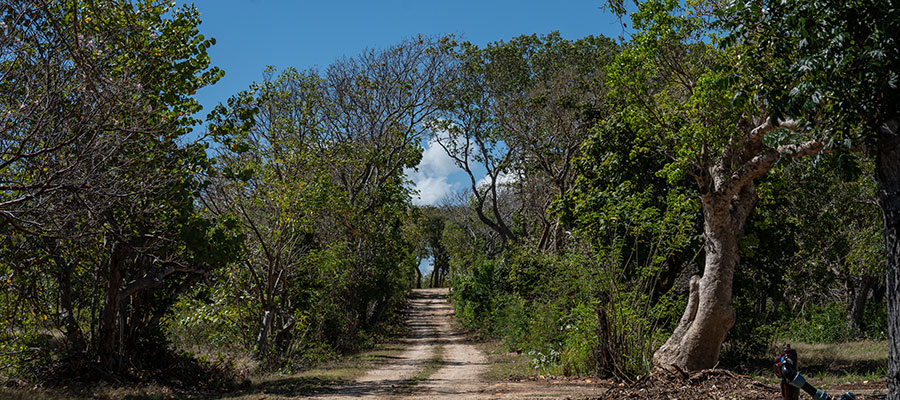
3 HECTARES, NO MORE!
In any case, the future looks rosy (or blue, the colour of sugar cane dear to Rodolphe’s heart), as the second harvest, from the same plot but increased from 1.2 to 1.5 hectares, yielded 121 tonnes of sugar cane! And this time, no less than 6,000 litres of brut de colonne were distilled. A trial with experimental yeasts was carried out on this vintage, while a brut de colonne is planned.
And in 18 to 20 months’ time, the first ESBs will be ready. However, Rodolphe Payen has no plans to convert his entire estate to sugar cane. Monoculture is not for him! The sugar cane plantations will perhaps go up to three hectares, but no more,” he warns. There are other plantations, and I want to keep all the trees. There are some very beautiful pear trees on the sugar cane plot. This reduces the yields, but I don’t want to alter the environment and keep the whole thing green.
And what else? While the ageing is currently taking place on the Jarry industrial and economic estate, the casks will soon – soon be housed directly at the Bel Air estate in Anse-Bertrand. And while there are no plans to purchase a distillation unit for the time being, nothing is ruled out for the future.
the future.
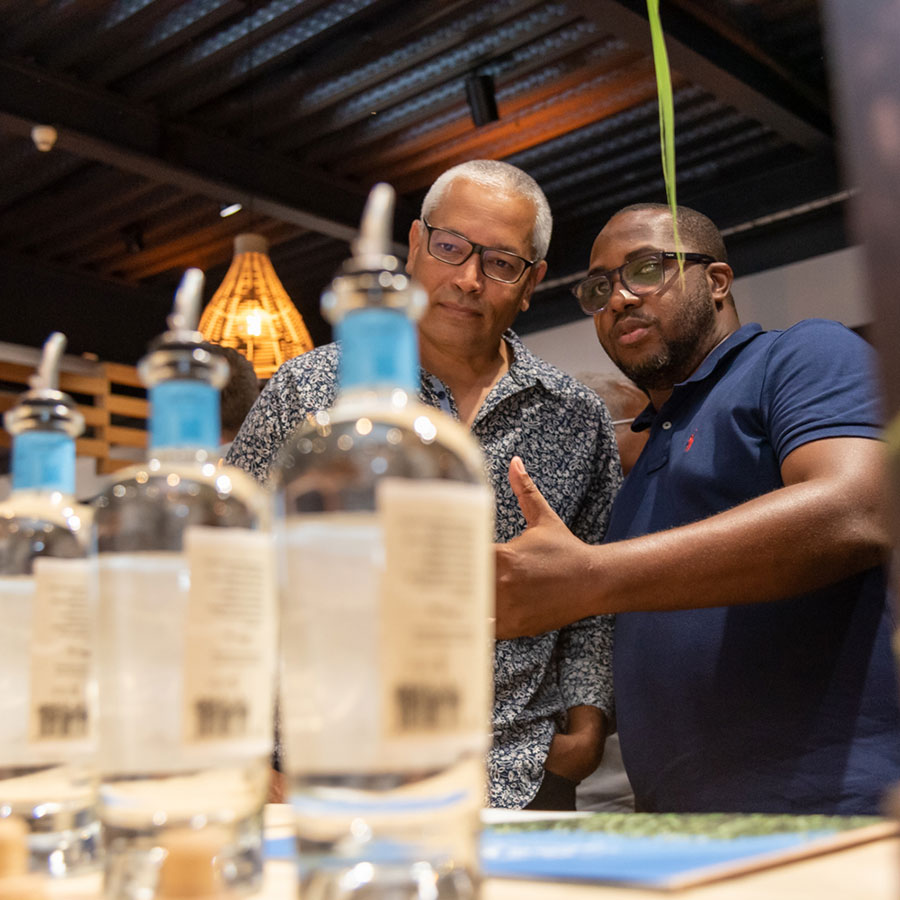
INDEPENDENT BOTTLER AND REFINER
But Marie-Louise is not Rodolphe Payen’s only rum-related project. The Guadeloupe-born entrepreneur has also launched a business as an independent bottler and refiner. “Reimonenq, Bielle, Longueteau, Montebello, Père Labat…
The principle is to blend different distilleries from Guadeloupe. Each distillery has its own specificities, but it is possible to bring them together. In cognac, we often talk about marriage”, teases Rodolphe Payen.
While this business is still in its infancy (it doesn’t yet have a name, for example), it promises to excite the taste buds of rum geeks, especially as Rodolphe Payen has also acquired some special casks, such as Caucasian oak casks.
